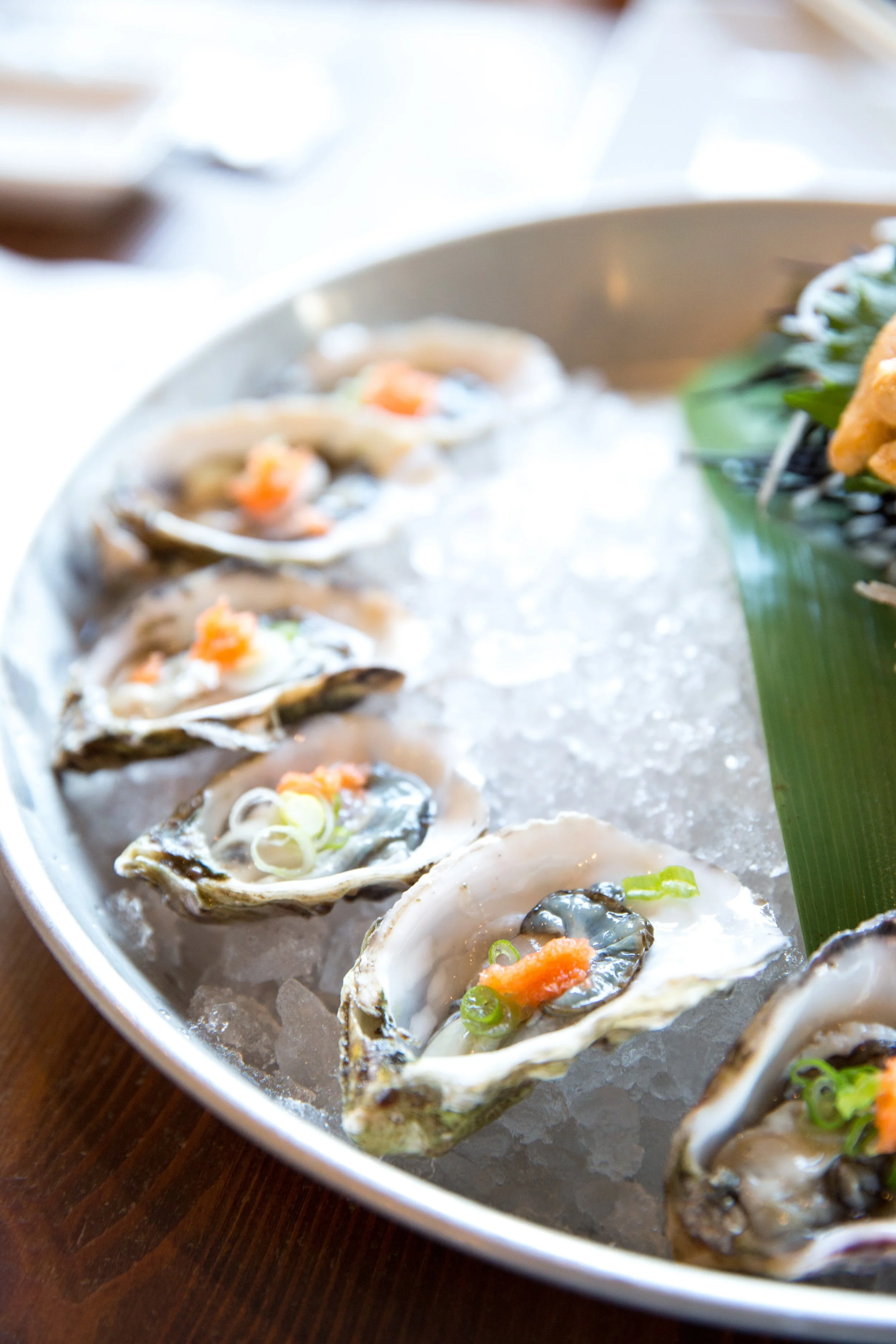13 Foods to Increase Progesterone
Progesterone is a hormone released from the ovaries in the second half of your menstrual cycle after ovulation. It is vital for optimal fertility, healthy pregnancy, and for symptom-free periods.
After ovulation progesterone will peak and either remains high if you get pregnant or will drop if you do not get pregnant that cycle. This drop in hormones will then trigger the release of your uterine lining (meaning you will get your period).
While progesterone is crucial for healthy fertility and pregnancy, it’s still important whether you are trying to conceive or trying NOT to get pregnant.
TEST YOUR HORMONES AT HOME!
Progesterone:
makes the uterine lining sticky for egg implantation
protects the uterine lining
has anti-anxiety benefits due to it’s relationship with releasing GABA – our natural relaxation mood chemical
has muscle relaxation effects (which may also be why if you ARE ovulating you could experience some constipation around ovulation because it’s slowing things down)
balances out estrogen levels
1:1 Period or Fertility Coaching
Certain things can impact progesterone production:
stress
nutrient deficiencies
lack of ovulation
estrogen dominance
under eating
not eating enough fat
over-exercising
high prolactin
low thyroid function
short luteal phase
menopause
Signs and symptoms of low progesterone include:
PMS
cramps
painful periods
heavy periods
cyclical headaches / migraines
irritability
anxiety
poor sleep
breast tenderness
bloating
ovarian cysts
irregular periods
infertility
1st trimester miscarriage
Learn exactly how to support healthy progesterone levels naturally in less than 1 hour!
You may be wondering: “are there any foods that can help to increase progesterone levels?”
The good news (actually, great, amazing, fantastic news) is YES - there are certain foods that contain nutrients to help increase progesterone in the body.
This important question we need to be asking is: why is my progesterone low in the first place?
This is taking a root cause approach when it comes to understanding our health and hormones. When we answer this question, we are understanding what is driving the imbalance (which is showing up as symptoms in the body).
By addressing the root cause, not simply just the symptom (or the hormone imbalance for that matter), we can find long-term, sustained healing.
I’m here to help you have better periods, symptomless cycles, and optimize fertility (whether that’s now or in the future) all through simple nutrition and lifestyle shifts that feel simple, doable, and empowering (not overwhelming).
heal your period program
As always, I’m giving away my best hormone tips here, answering your burning questions, and letting you in on the what the science says.
This is the kind of insider info I share with all of my 1:1 coaching clients and students in my signature course, Heal Your Period.
I’m so passionate about sharing this info with anyone on a hormone healing journey, so I’m letting you in with all the info here!
So, let’s dive in into it!
work with me 1:1
What foods can help to increase progesterone?
Here are 13 foods to increase progesterone:
1. Nuts
Nuts are great foods to increase progesterone because of the minerals zinc and magnesium.
Zinc is an important mineral used to help promote the reproductive system. A study found that zinc is able to increase the number of binding sites on a progesterone receptor which will increase total progesterone levels.
Magnesium is a mineral that helps with muscle protein synthesis, nerve functioning, and it is a cofactor for many enzymatic reactions. A study found an inverse relationship with magnesium and estrogen, showing that as magnesium levels increased, estrogen levels decreased. We know that estrogen and progesterone work in opposition so when estrogen levels are lowered this means that there will be an increase in progesterone naturally.
2. Dark Chocolate
Another one of the foods to increase progesterone is dark chocolate. Dark chocolate contains magnesium, and as previously stated, this can have a very beneficial effect on total progesterone because magnesium can lower estrogen.
3. Poultry
Chicken and turkey are common sources of poultry which are foods to increase progesterone. Vitamin B6 is rich in these lean meats which is the reason these are foods to increase progesterone. Vitamin B6 is an important water-soluble vitamin to help promote the reproductive system. A study found that supplementation of B6 increased progesterone levels and decreased estrogen levels. Additionally, vitamin B6 combined with calcium can decrease PMS symptoms.
4. Citrus
Citrus fruits are a good source of Vitamin C, making them foods to increase progesterone. Vitamin C is a water-soluble vitamin that has many beneficial functions like improving immune function, creating scars for wound healing, and helps maintain tissue and skin integrity. A study found that vitamin C was associated with higher progesterone levels in perimenopausal women. Additionally, another study found that pregnancy rates increased and progesterone levels increased in those who supplemented with vitamin C and had luteal phase defect (shortened luteal phase).
5. Leafy Greens
Leafy greens are beneficial foods to increase progesterone too. These foods contain calcium and magnesium which are the active minerals in affecting progesterone. A study has found that hormone-stimulated progesterone production requires calcium ions for it to be produced, so if calcium consumption increases through foods then progesterone will increase.
6. Peppers
Peppers contain high amounts of vitamin C as well as citrus. Specifically, red peppers have the highest concentration of vitamin C. This is why peppers are another one of the foods to increase progesterone.
7. Avocado
Avocados have a high amount of healthy fats which is why they are one of the foods to increase progesterone. Healthy fats are unsaturated which means they have at least one double bond in the fatty acid chain. They have fewer hydrogen bonds. Polyunsaturated fats are fatty acids that contain at least 2 double bonds in the structure. It has been shown that healthy fat consumption, specifically polyunsaturated fats were associated with increased progesterone and decreased anovulation. Additionally, fat consumption is needed for hormone production in general because hormones are made of lipids (the broken down component of fat).
8. Salmon
Salmon is one of the few foods that contain optimal amounts of omega 3 fatty acids are a type of healthy fat, specifically polyunsaturated fats. Due to this, salmon is one of the foods to increase progesterone. Omega 3s can increase luteinizing hormone (LH), which can then increase progesterone production. Omega 3s have also been found to be beneficial in managing PMS symptoms which are tied to lower progesterone.
9. Shrimp
Another one of the foods to increase progesterone naturally is shrimp. This is another lean protein, meaning it has lower fat content than conventional meat, and it contains high amounts of zinc. The consumption of fat from animal sources should be lower than the consumption of fat from plant sources because plant sources contain more of those healthy fats mentioned before. Additionally, previously noted was that zinc is a vital mineral and can assist with increasing progesterone naturally.
10. Cruciferous Vegetables
Cruciferous vegetables include broccoli, cauliflower, cabbage, and more. These vegetables are noted as one of the foods to increase progesterone due to their estrogen detoxification effect. When progesterone is low in the body, this could be due to estrogen dominance, which is a higher ratio of estrogen to progesterone. This is not optimal because the excess estrogen in the body is not being eliminated through the gut and can cause many unwanted symptoms like constipation, fatigue, and stress. Estrogen detoxification is the process the liver undergoes in order to excrete the estrogen to maintain normal levels, and this leads to normalized progesterone levels.
Indole-3-Carbinol (I3C) is the main compound in many cruciferous vegetables. A study found that participants who were given the I3C, had decreased concentrations of metabolites that would activate the estrogen receptor, which shows that it can lower estrogen naturally and increase progesterone.
Sulforaphane is another compound found in cruciferous vegetables. A study found that sulforaphane has protective effects against pathways that lead to carcinogenic effects from high estrogen by inhibiting estrogen-induced DNA damage which will increase progesterone.
11. Oats
Another one of the foods to increase progesterone is oats. Oats contain lots of good fiber which is beneficial for estrogen detoxification. Estrogen is eliminated through the gut, so if there is more fiber this can add bulk to each bowel movement and allow the estrogen to be excreted. Maintaining healthy bowel movements is very important for hormone balance, and will help lower estrogen to a normal level leading to increased progesterone.
12. Grass-Fed Beef
Grass-fed organic meat is another one of the foods to increase progesterone. The livestock animals on factory farms (not grass-fed organic) are produced to grow as big and fast as possible in order to produce the most amount of meat per animal. These animals are fed large quantities of feed and additionally are supplemented with antibiotics, and growth hormones like estrogen to make them grow faster and bigger. A study found that though the estrogen level in these meat products does not match the amount of estrogen in oral contraceptives, the estrogen in the meat transfers at a significant amount to humans. This estrogen that transmits to humans can be a cause for estrogen dominance. Because of this, it is recommended to shop for grass-fed and organic meat when you can. These meat options are made from animals who were not mass-produced with hormones, and they were fed their preferred diet which is grass. This way, you can lower estrogen and increase progesterone naturally.
13. Pumpkin Seeds
Another one of the foods to increase progesterone is pumpkin seeds. These seeds are beneficial because they contain a combination of zinc, magnesium, healthy fats, and protein, which all contribute to increasing progesterone.
*NEW*
LOW PROGESTERONE TOOLKIT
Key Nutrition & Lifestyle Foundations for Supporting Healthy Ovulation & Increasing Progesterone Naturally
FINAL THOUGHTS
There are many foods that can help to increase progesterone levels.
While we chatted through lots of different options, remember that every body is unique and it’s about determine what works best for your body.
The main foundations when it comes to increasing progesterone naturally is focusing on blood sugar balance, eating enough for your body, and including important hormone supportive nutrients like vitamin C, magnesium, and B vitamins (to name a few).
Remember: simple shifts build to make a big impact over time!
Healthy progesterone levels are possible for you.
-Krista
ways to work with me
Krista King, MS, RDN, LDN, IFNCP
If you’re looking for individualized support for period problems, PCOS, endometriosis, stopping birth control, and/or fertility I’m your person! I have select spaces each month for:
Krista is an integrative dietitian helping you have regular, pain-free periods, symptomless cycles, and optimal fertility! Together we cover: nutrition, exercise, sleep, stress management, cycle tracking, supplements, navigating doctor appointments, and lab testing.
My signature online program, Heal Your Period is open for enrollment!
This is your personalized solution for regular, pain-free periods, symptomless cycles, & optimal fertility (now or later), without complicated, soul-sucking protocols, lists of foods you can’t eat, or spending tons of $$$ on unnecessary supplements.
Heal Your Period is an online course with access to me to answer your burning hormone questions each month! Watch this for a special savings offer!







































